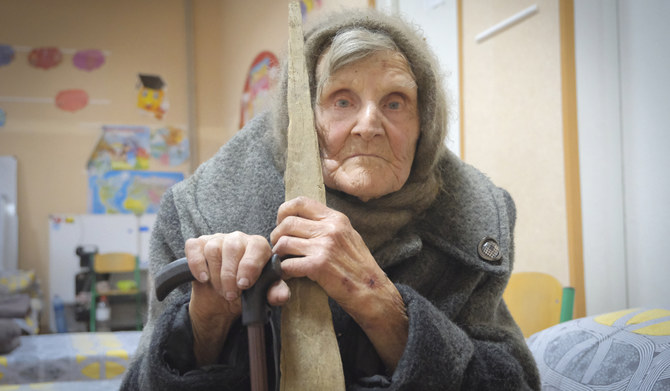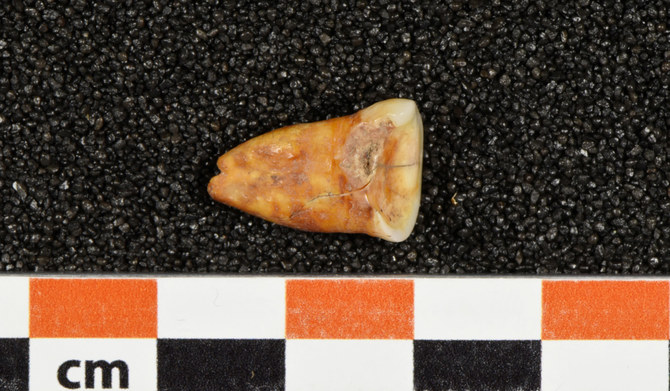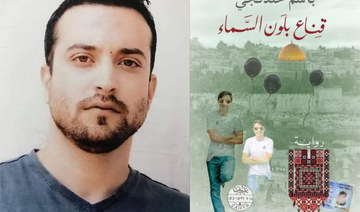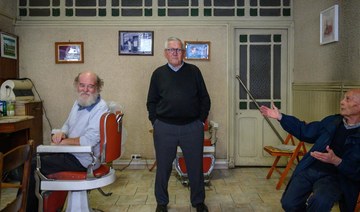If critics are to be believed, the Philippines, despite the annual contributions of over $20 billion in foreign exchange earnings of the 10 million overseas Filipino workers deployed worldwide, does not have any solid, viable, and sustainable policy on its OFWs.
Despite their unparalleled contributions to the Philippine economy, the government continues to show a cavalier attitude on this sector, treating the OFWs as second class citizens.
Although the export of human labor has evolved to become a multibillion dollar enterprise for the past 40 years, the government appears unkind to what it has once described as its “modern-day heroes.” Proof: The national budget allocates little funds for the OFWs.
Because of the limited budgetary outlays, those OFWs, who encounter difficulties in their foreign works, are left to fend for themselves. When they return for good, they hardly have the means to start anew and reintegrate themselves in mainstream society.
Hence, the OFWs constitute a neglected sector. Except for some lip service and existing policies supposedly to protect and assist them, the government hardly attends to their requirements.
Filipino Diaspora
Dictator Ferdinand Marcos allowed the exodus of Filipino workers to foreign destinations in early 1970s, or early days of his martial rule, mainly as a stop-gap measure to the then growing unemployment. But what started as a stop-gap measure has become a multibillion dollar enterprise, making it a regular feature of the Philippine economy.
Over the last 40 years, the 10 million-strong Filipino Diaspora has been hailed as the real backbone of the domestic economy. In 2012, total exports reached almost $51 billion and revenues from almost 4.3 million tourists, half of whom were Filipinos, totalled only $2.7 billion. Without the over $20 billion annual foreign remittance of the OFWs, the domestic economy could hardly sustain its requirements.
Their yearly remittance could go up to $40 billion if only the foreign exchange earnings that pass through illegal channels are to be counted. Their annual earnings of over $20 billion comprise five percent of the country’s Gross Domestic Product of $430 billion. The foreign exchange surplus of over $12 billion comes from the earnings of the OFWs and immigrants, making skilled Filipino workers the nation’s biggest export.
When the 1997 financial crisis crippled many Asian economies, the Philippines did not suffer much unlike its Southeast Asian neighbors. It showed unquestionable resilience and buoyancy. This is because the OFW sector sustained the national economy; their foreign exchange contributions propped up the economy.
Adaptability
No one could be more expedient and adaptable on earth other than the OFWs. Throw them in any of the inhospitable places on this planet and they will certainly survive.
The Filipino Diaspora is visible in most parts of the world. Filipino workers are in the desert construction sites in the Middle East countries, the fishing boats on the Scandinavian fjords, the cruise ships on the Caribbean, the homes of the rich and famous in Europe and United States, or in the typhoon ravaged islands of the South Pacific. They perform jobs that range from the menial to the highly technical, or from the lowly to the sophisticated.
Values
The Filipino Diaspora survived the hostile foreign environment because the OFWs have brought with them essential Filipino traits and values that all reflect persistence, adaptability, expediency, a great sense of humor, and a deep sense of religiosity.
The fundamental value is bahala na (literally, come what may). No Filipino would survive the challenge of a foreign job without adhering to this value. Contrary to Western thinkers, who regard it as an expression of fatalism, the OFWs have added a dimension to bahala na, which is audacity, or lakas ng loob or tibay ng dibdid in Tagalog. Only those OFWs, who would dare to go out to meet the hostile foreign environment, could survive the challenges.
In short, the Filipino overseas workers have made bahala na a proactive value. It's no longer as static or fatalistic as it used to be in the past.
The OFWs also exhibit three other values: Sapalaran, diskarte, or abilidad. Sapalaran could be loosely translated as a sense of adventure; diskarte, ingenuity; and abilidad, adaptability.
Ask them on why they are working abroad and their answers would invariably go around on those concepts. They would add their love of God and family.
Policy options
Congress has been deluged by many policy initiatives to improve the lot of OFWs. A number of bills have been filed. But the administration of President Benigno Aquino III has not made a single pronouncement for OFWs.
It has not come out with a strategy to create alternative industries to absorb the OFWs, particularly those who have developed highly priced skills and specialties during their foreign stints. It has to develop an industrial program to create massive industries that would provide employment not just for the OFWs but also to other technically qualified citizens.
The administration has to spell out a definitive policy to phase out gradually — within a decade or less — the deployment of the OFWs to give way to these industries.
It is about time to attend to the country’s own development initiatives to stop their deployment elsewhere and deploy them instead to the local industries to be created by such development initiatives.
Native practices
Those contract workers bring with them their native practices when they work overseas. Every Sunday, most OFWs would be found gathering in Christian churches – mostly Catholic – abroad hearing masses and joining church services.
Or they would gather in big numbers in some squares. The weekend gatherings of Pinay DHs in Hong Kong have become perfect occasions for a treat of Filipino merienda. They feast on lumpia, pancit and dinuguan, which are cooked by Pinays there.
But they also bring some disturbing practices. In Hong Kong, Singapore, and other Asian cities, Pinoys there bet on daily jueteng (informal lottery) or the PBA ending game, using a bunch of local runners and bet collectors.
Also, Pinays have made informal lending a part of the Hong Kong's underground economy. Cash-strapped Pinays could borrow a certain amount of money from fellow Pinays, using their passports as collaterals. Filipino men also hold sabong (cockfighting) there. For a while, they succeeded in bringing chicken eggs there and incubate them to become fighting cocks. Their Chinese friends join them in the betting.
In Singapore, those Pinays had different stories. Some DHs became depressed (binuryong) and committed suicide by jumping from the high-rise apartments of employers. The maltreatment of some OFWs by their employers is widely reported too. In some destinations, notably Taiwan, OFWs, particularly Pinoys, were reported to have been mugged publicly.
Heavy social cost
But the export of human labor is not – or has never been – a bed of roses; it is always with a heavy social cost. A never ending string of sob stories are associated with the OFWs. Husbands who have become philanderers, wives who have gone astray, teen-age sons, who have become criminals and drug addicts, teen-age daughters, who have become unwed mothers – these are just few of the plots and subplots that are being retold from one mouth to another about the lives of many OFWs.
Because of loneliness and homesickness, some OFWs have become mentally unstable. Some committed suicide, while others have run away from their work sites and employers. The heavy social cost arising from their estrangement from their families is a reason that some advocates have openly called for the adoption of a policy to stop their deployment abroad and work for the return of other OFWs to strengthen society.
They assert that no amount of foreign exchange remittance could justify the deployment of OFWs, if it could lead to weakening of the social fabric of the Philippine society. The heavy social cost has been largely unmatched by the huge foreign exchange earnings, the advocates claim. For every dollar of remittance, the country spends three dollars to attend to the social deviation caused by OFWs families here.
Labor migration
Twenty years after Marcos allowed the deployment of Filipino workers abroad, Congress has enacted a labor migration policy, which protects OFWs from illegal recruitment and other abuses. Republic Act 8042, or the Migrant Workers and Overseas Filipinos Act of 1995, seeks to promote their interest while working abroad. Congress hurriedly enacted it to neutralize the backlash that resulted from the decision of the Singaporean court to impose a death sentence on Filipino domestic Flor Contemplacion, who was accused of killing a fellow Filipino domestic in 1994.
RA 8042 explicitly says: “The protection of the Filipino migrant workers and the promotion of their welfare, in particular, and the protection of the dignity and fundamental rights and freedoms of the Filipino citizen abroad, in general, shall be the highest priority concerns of the Secretary of Foreign Affairs and the Philippine Foreign Service Posts.”
RA 8042 provides mechanisms to protect Filipino labor migrants from issues such as illegal recruitment and abuse by their employers. This law calls for the creation of P100 million fund to guarantee loans of families of departing OFWs, P100 million fund for emergency repatriation of distressed workers in their host countries, and P100 million legal fund for workers facing court cases in foreign countries.
RA 8042 also provides the establishment of Migrant Workers and Other Overseas Filipinos Resource Center to provide counseling and legal services, welfare assistance, including medical services, post-arrival orientation, settlement and community networking services, human resource development, including skills training, monitoring of daily situations of migrant workers.
For returning OFWs, it provides for the establishment of replacement and monitoring center to aid their reintegration into mainstream society and develop livelihood programs and promoting local employment.
In late 1997, Congress passed RA 8424, or the “Tax Reform Act of 1997,” which exempts all OFWs from paying taxes on their income that comes from working abroad. It says that only his income that comes from local sources could be taxed.
Low budget
But the provisions under RA 8042 have been affected adversely by the perceived dwindling budgetary allocations for OFWs. Out of the 2014 national budget of P2.264 trillion, the Department of the Labor and Employment has a budget of P10.22 billion, or .45 percent of the overall national budget, for its operations. The budget of P10.22 billion for DOLE is subdivided into P7.60 billion for regional operations, P2.12 billion for central operations and P499 million, for overseas workers operations.
OFW Family Rep. Roy Seneres, the lone representative of the OFW sector in Congress, decried that since the budget of P499 million constitutes 4.9 percent of the budget of P10.22 billion for DOLE, “we are totally unmindful and ungrateful of the contributions of our modern-day heroes.” According to Seneres, the OFWs’ contributions could reach five percent of the GDP, but the government is spending a negligible .022 percent, or a little over one-fifth of one percent, of its overall 2014 national budget for OFWs, indicating the government low regard for this sector. “The mismatch is too glaring to ignore” he said.
Policy distortions
The national budget is not just a list or summary of the expenditures - or investments - of the national government. It is the compendium of explicit and implicit policies of the national government. In short, it is the single summary of all national policies.
All explicit and implicit national policies find expression in the national budget. Any policy that requires priority has to have the required budget. Otherwise, the pursuit of that national policy would be jeopardized. Hence, the national budget is the single most effective expression of all expressed and unexpressed national policies.
With such miniscule budget for OFWs, the national government has embarked on a policy to discourage ordinary citizens from seeking foreign employment. It appears that the message now is that the government could not provide protection or support for OFWs, who are seeking greener pastures abroad.
It appears that any Filipino, who seeks foreign employment, can only do it at his own peril. Hence, he cannot hope or expect for government protection, support, and assistance, when the goings get rough.
Policy options
Congress has been deluged by many policy initiatives to improve the lot of OFWs. A number of bills have been filed. But the administration of President Benigno Aquino III has not made a single pronouncement for OFWs.
It has not come out with a strategy to create alternative industries to absorb the OFWs, particularly those who have developed highly priced skills and specialties during their foreign stints. It has to develop an industrial program to create massive industries that would provide employment not just for the OFWs but also to other technically qualified citizens.
The administration has to spell out a definitive policy to phase out gradually – within a decade or less - the deployment of the OFWs to give way to these industries.
It is about time to attend to the country’s own development initiatives to stop their deployment elsewhere and deploy them instead to the local industries to be created by such development initiatives.
Overseas Filipino workers feel neglected by Manila
Overseas Filipino workers feel neglected by Manila

A 98-year-old in Ukraine walked miles to safety from Russians, with slippers and a cane

- Describing her journey, the nonagenarian said she had fallen twice and was forced to stop to rest at some points, even sleeping along the way before waking up and continuing her journey
KYIV, Ukraine: A 98-year-old woman in Ukraine who escaped Russian-occupied territory by walking almost 10 kilometers (6 miles) alone, wearing a pair of slippers and supported by a cane has been reunited with her family days after they were separated while fleeing to safety.
Lidia Stepanivna Lomikovska and her family decided to leave the frontline town of Ocheretyne, in the eastern Donetsk region, last week after Russian troops entered it and fighting intensified.
Russians have been advancing in the area, pounding Kyiv’s depleted, ammunition-deprived forces with artillery, drones and bombs.
“I woke up surrounded by shooting all around — so scary,” Lomikovska said in a video interview posted by the National Police of Donetsk region.
In the chaos of the departure, Lomikovska became separated from her son and two daughters-in-law, including one, Olha Lomikovska, injured by shrapnel days earlier. The younger family members took to back routes, but Lydia wanted to stay on the main road.
With a cane in one hand and steadying herself using a splintered piece of wood in the other, the pensioner walked all day without food and water to reach Ukrainian lines.
Describing her journey, the nonagenarian said she had fallen twice and was forced to stop to rest at some points, even sleeping along the way before waking up and continuing her journey.
“Once I lost balance and fell into weeds. I fell asleep … a little, and continued walking. And then, for the second time, again, I fell. But then I got up and thought to myself: “I need to keep walking, bit by bit,’” Lomikovska said.
Pavlo Diachenko, acting spokesman for the National Police of Ukraine in the Donetsk region, said Lomikovska was saved when Ukrainian soldiers spotted her walking along the road in the evening. They handed her over to the “White Angels,” a police group that evacuates citizens living on the front line, who then took her to a shelter for evacuees and contacted her relatives.
“I survived that war,’ she said referring to World War II. “I had to go through this war too, and in the end, I am left with nothing.
“That war wasn’t like this one. I saw that war. Not a single house burned down. But now – everything is on fire,” she said to her rescuer.
In the latest twist to the story, the chief executive of one of Ukraine’s largest banks announced on his Telegram channel Tuesday that the bank would purchase a house for the pensioner.
“Monobank will buy Lydia Stepanivna a house and she will surely live in it until the moment when this abomination disappears from our land,” Oleh Horokhovskyi said.
Amazon Purr-rime: Cat accidentally shipped to online retailer

- Galena was found safe by a warehouse worker at an Amazon center after vanishing from her home in Utah
LOS ANGELES: A curious cat that sneaked into an open box was shipped across the United States to an Amazon warehouse after its unknowing owners sealed it inside.
Carrie Clark’s pet, Galena, vanished from her Utah home on April 10, sparking a furious search that involved plastering “missing” posters around the neighborhood.
But a week later, a vet hundreds of miles (kilometers) away in Los Angeles got in touch to say the cat had been discovered in a box — alongside several pairs of boots — by a warehouse worker at an Amazon center.
“I ran to tell my husband that Galena was found and we broke down upon realizing that she must have jumped into an oversized box that we shipped out the previous Wednesday,” Clark told KSL TV in Salt Lake City.
“The box was a ‘try before you buy,’ and filled with steel-toed work boots.”
Clark and her husband jetted to Los Angeles, where they discovered Amazon employee Brandy Hunter had rescued Galena — a little hungry and thirsty after six days in a cardboard box, but otherwise unharmed.
“I could tell she belonged to someone by the way she was behaving,” said Hunter, according to Amazon.
“I took her home that night and went to the vet the next day to have her checked for a microchip, and the rest is history.”
What did people eat before agriculture? New study offers insight

- Analysis of forms — or isotopes — of elements including carbon, nitrogen, zinc, sulfur and strontium in these remains indicated the type and amount of plants and meat they ate
WASHINGTON: The advent of agriculture roughly 11,500 years ago in the Middle East was a milestone for humankind — a revolution in diet and lifestyle that moved beyond the way hunter-gatherers had existed since Homo sapiens arose more than 300,000 years ago in Africa.
While the scarcity of well-preserved human remains from the period preceding this turning point has made the diet of pre-agricultural people a bit of a mystery, new research is now providing insight into this question. Scientists reconstructed the dietary practices of one such culture from North Africa, surprisingly documenting a heavily plant-based diet.
The researchers examined chemical signatures in bones and teeth from the remains of seven people, as well as various isolated teeth, from about 15,000 years ago found in a cave outside the village of Taforalt in northeastern Morocco. The people were part of what is called the Iberomaurusian culture.
Analysis of forms — or isotopes — of elements including carbon, nitrogen, zinc, sulfur and strontium in these remains indicated the type and amount of plants and meat they ate. Found at the site were remains from different edible wild plants including sweet acorns, pine nuts, pistachio, oats and legumes called pulses. The main prey, based on bones discovered at the cave, was a species called Barbary sheep.
“The prevailing notion has been that hunter-gatherers’ diets were primarily composed of animal proteins. However, the evidence from Taforalt demonstrates that plants constituted a big part of the hunter-gatherers’ menu,” said Zineb Moubtahij, a doctoral student in archaeology at the Max Planck Institute for Evolutionary Anthropology in Germany and lead author of the study published on Monday in the journal Nature Ecology & Evolution.
“It is important as it suggests that possibly several populations in the world already started to include substantial amount of plants in their diet” in the period before agriculture was developed, added archeogeochemist and study co-author Klervia Jaouen of the French research agency CNRS.
The Iberomaurusians were hunter-gatherers who inhabited parts of Morocco and Libya from around 25,000 to 11,000 years ago. Evidence indicates the cave served as a living space and burial site.
These people used the cave for significant portions of each year, suggesting a lifestyle more sedentary than simply roaming the landscape searching for resources, the researchers said. They exploited wild plants that ripened at different seasons of the year, while their dental cavities illustrated a reliance on starchy botanical species.
Edible plants may have been stored by the hunter-gatherers year-round to guard against seasonal shortages of prey and ensure a regular food supply, the researchers said.
These people ate only wild plants, the researchers found. The Iberomaurusians never developed agriculture, which came relatively late to North Africa.
“Interestingly, our findings showed minimal evidence of seafood or freshwater food consumption among these ancient groups. Additionally, it seems that these humans may have introduced wild plants into the diets of their infants at an earlier stage than previously believed,” Moubtahij said.
“Specifically, we focused on the transition from breastfeeding to solid foods in infants. Breast milk has a unique isotopic signature, distinct from the isotopic composition of solid foods typically consumed by adults.”
Two infants were among the seven people whose remains were studied. By comparing the chemical composition of an infant’s tooth, formed during the breastfeeding period, with the composition of bone tissue, which reflects the diet shortly before death, the researchers discerned changes in the baby’s diet over time. The evidence indicated the introduction of solid foods at around the age of 12 months, with babies weaned earlier than expected for a pre-agricultural society.
North Africa is a key region for studying Homo sapiens evolution and dispersal out of Africa.
“Understanding why some hunter-gatherer groups transitioned to agriculture while others did not can provide valuable insights into the drivers of agricultural innovation and the factors that influenced human societies’ decisions to adopt new subsistence strategies,” Moubtahij said.
Palestinian prisoner in Israel wins top fiction prize

- The mask in the novel’s title refers to the blue identity card that Nur, an archaeologist living in a refugee camp in Ramallah, finds in the pocket of an old coat belonging to an Israeli
ABU DHABI: Palestinian writer Basim Khandaqji, jailed 20 years ago in Israel, won a prestigious prize for Arabic fiction on Sunday for his novel “A Mask, the Color of the Sky.”
The award of the 2024 International Prize for Arabic Fiction was announced at a ceremony in Abu Dhabi.
The prize was accepted on Khandaqji’s behalf by Rana Idriss, owner of Dar Al-Adab, the book’s Lebanon-based publisher.
Khandaqji was born in the Israeli-occupied West Bank city of Nablus in 1983, and wrote short stories until his arrest in 2004 at the age of 21.
He was convicted and jailed on charges relating to a deadly bombing in Tel Aviv, and completed his university education from inside jail via the Internet.
The mask in the novel’s title refers to the blue identity card that Nur, an archaeologist living in a refugee camp in Ramallah, finds in the pocket of an old coat belonging to an Israeli.
Khandaqji’s book was chosen from 133 works submitted to the competition.
Nabil Suleiman, who chaired the jury, said the novel “dissects a complex, bitter reality of family fragmentation, displacement, genocide, and racism.”
Since being jailed Khandaqji has written poetry collections including “Rituals of the First Time” and “The Breath of a Nocturnal Poem.”
He has also written three earlier novels.
Mexican doctor claims victory in $28 Cartier earrings battle

MEXICO CITY: A Mexican man has claimed a victory over French luxury brand Cartier, saying an error allowed him to buy two pairs of earrings for $28 that were supposed to cost nearly $28,000.
After a four-month struggle, doctor Rogelio Villarreal said he had finally received the jewelry, which he accused the company of refusing to deliver after his online purchase in December.
According to Villarreal, he came across the low-priced earrings while browsing Instagram.
“I swear I broke out in a cold sweat,” he wrote on the social media platform X.
Cartier declined to recognize the purchase and offered Villarreal a refund, as well as a bottle of champagne and a passport holder as compensation, according to a company letter shared by the doctor.
But Villarreal refused and decided to take the case to Mexico’s consumer protection agency, which ruled in favor of the doctor.
Cartier accepted the decision, Villarreal announced.
“War is over. Cartier is complying,” he wrote.















